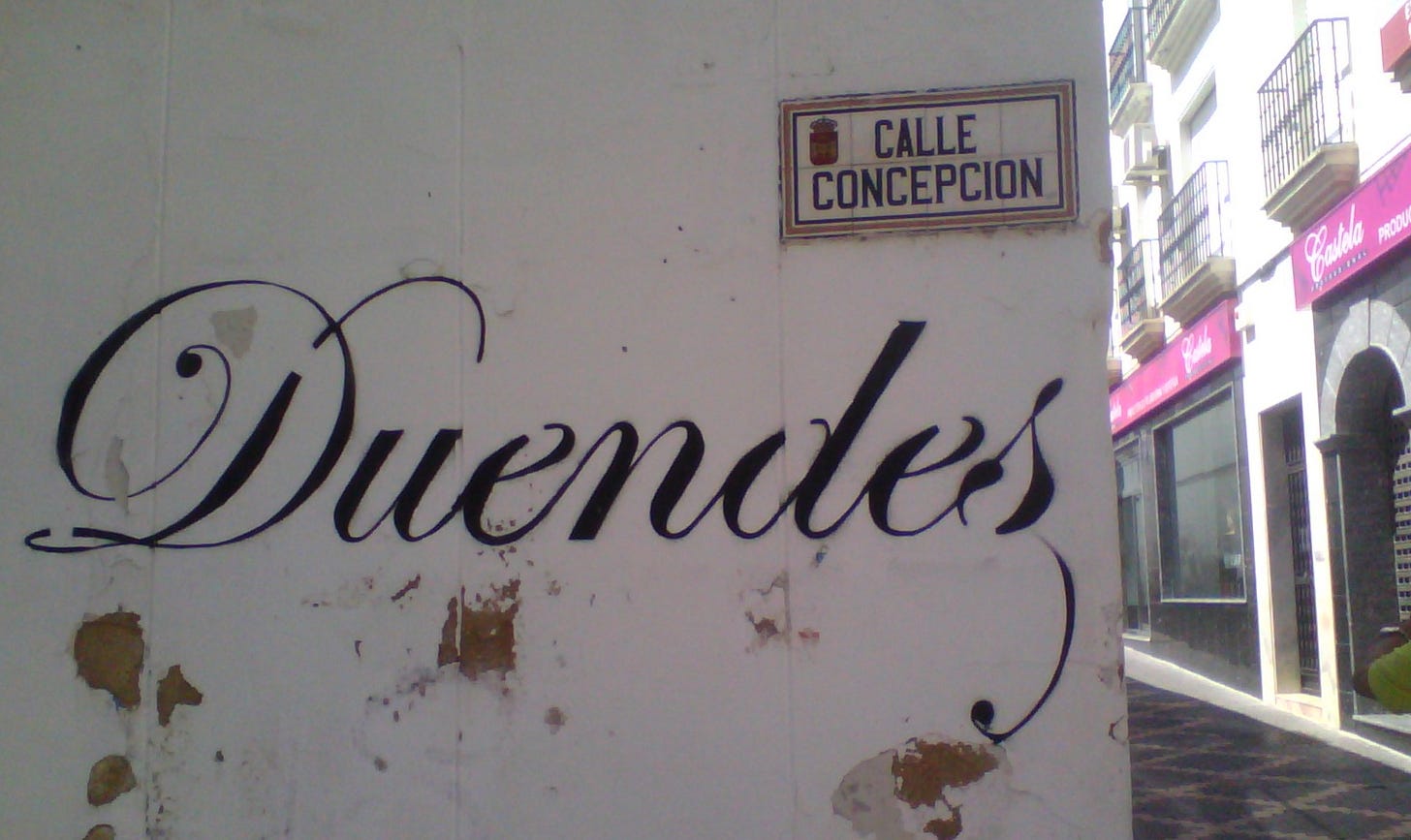What is the Spanish concept of "duende" that Lorca (and Leonard Cohen) loved?
So easy to feel, so hard to define...
The Spanish poet Federico Garcia Lorca wrote in his essay "Teoria y Juego del Duende" ("Play and Theory of the Duende") that duende "is a power and not a behavior…a struggle and not a concept."
Personally, I’ve taken it to be, for example, that core spirit of the art that is said to take over flamenco dancers when they are in full flight.
A concise meaning of duende from Merriam Webster:
The word duende refers to a spirit in Spanish, Portuguese, and Filipino folklore and literally means "ghost" or "goblin" in Spanish. It is believed to derive from the phrase dueño de casa, which means "owner of a house." The term is traditionally used in flamenco music or other art forms to refer to the mystical or powerful force given off by a performer to draw in the audience.
The concept of "duende" which Lorca so beautifully explained and of which Leonard Cohen was so much immersed in...He respected Lorca's work so much he named his daughter after him.
"So, no, I don’t want that terrible blowfly of boredom to enter this room, threading all your heads together on the slender necklace of sleep, and setting a tiny cluster of sharp needles in your, my listeners’, eyes.
In a simple way, in the register that, in my poetic voice, holds neither the gleams of wood, nor the angles of hemlock, nor those sheep that suddenly become knives of irony, I want to see if I can give you a simple lesson on the buried spirit of saddened Spain.
Whoever travels the bull’s hide that stretches between the Júcar, Guadalfeo, Sil and Pisuerga rivers (not to mention the tributaries that meet those waves, the colour of a lion’s mane, that stir the Plata) frequently hears people say: ‘This has much duende’. Manuel Torre, great artist of the Andalusian people, said to someone who sang for him: ‘You have a voice, you understand style, but you’ll never ever succeed because you have no duende.’
All through Andalusia, from the rock of Jaén to the snail’s-shell of Cadiz, people constantly talk about the duende and recognise it wherever it appears with a fine instinct. That wonderful singer El Lebrijano, creator of the Debla, said: ‘On days when I sing with duende no one can touch me.’: the old Gypsy dancer La Malena once heard Brailowsky play a fragment of Bach, and exclaimed: ‘Olé! That has duende!’ but was bored by Gluck, Brahms and Milhaud. And Manuel Torre, a man who had more culture in his veins than anyone I’ve known, on hearing Falla play his own Nocturno del Generalife spoke this splendid sentence: ‘All that has dark sounds has duende.’ And there’s no deeper truth than that.
Those dark sounds are the mystery, the roots that cling to the mire that we all know, that we all ignore, but from which comes the very substance of art. ‘Dark sounds’ said the man of the Spanish people, agreeing with Goethe, who in speaking of Paganini hit on a definition of the duende: ‘A mysterious force that everyone feels and no philosopher has explained.’
So, then, the duende is a force not a labour, a struggle not a thought. I heard an old maestro of the guitar say: ‘The duende is not in the throat: the duende surges up, inside, from the soles of the feet.’ Meaning, it’s not a question of skill, but of a style that’s truly alive: meaning, it’s in the veins: meaning, it’s of the most ancient culture of immediate creation.
This ‘mysterious force that everyone feels and no philosopher has explained’ is, in sum, the spirit of the earth, the same duende that scorched Nietzche’s heart as he searched for its outer form on the Rialto Bridge and in Bizet’s music, without finding it, and without seeing that the duende he pursued had leapt from the Greek mysteries to the dancers of Cadiz and the headless Dionysiac scream of Silverio’s siguiriya.
So, then, I don’t want anyone to confuse the duende with the theological demon of doubt at whom Luther, with Bacchic feeling, hurled a pot of ink in Eisenach, nor the Catholic devil, destructive and of low intelligence, who disguised himself as a bitch to enter convents, nor the talking monkey carried by Cervantes’ Malgesi in his comedy of jealousies in the Andalusian woods"
No. The duende I mean, secret and shuddering, is descended from that blithe daemon, all marble and salt, of Socrates, whom it scratched at indignantly on the day when he drank the hemlock, and that other melancholy demon of Descartes, diminutive as a green almond, that, tired of lines and circles, fled along the canals to listen to the singing of drunken sailors."
From https://www.facebook.com/groups/187157358408657/posts/2057886471335727/







This post has a lot of duende, Brett!